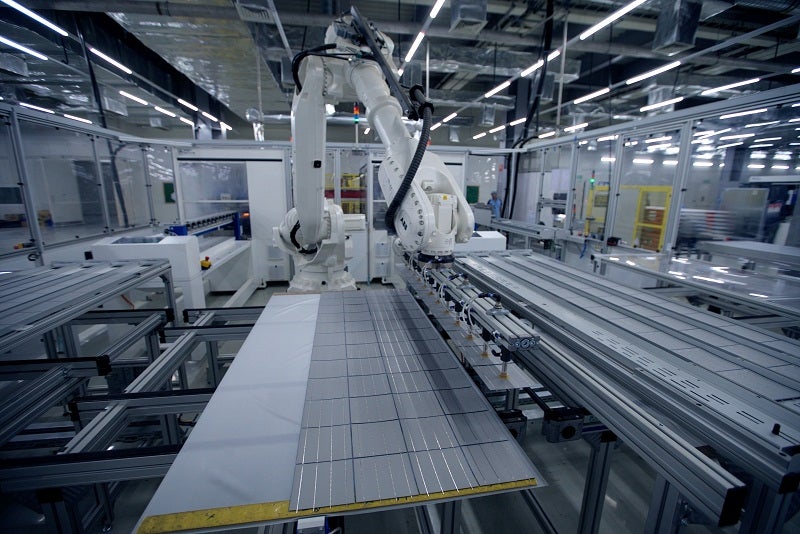
Adani Green Energy (AGEL) has won a contract from the Solar Energy Corporation of India (SECI) to develop 8GW of solar projects at a cost of $6bn (Rs450bn).
The agreement also covers the construction of 2GW of additional solar cell and module manufacturing capacity.

Discover B2B Marketing That Performs
Combine business intelligence and editorial excellence to reach engaged professionals across 36 leading media platforms.
In a statement, AGEL said the investment will create 400,000 direct and indirect jobs. It also estimates the renewable energy generated will displace 900 million tonnes of carbon dioxide over its lifetime.
Adani Group chairman Gautam Adani said: “In today’s world, climate adaptation cannot be considered independent of economic development priorities and both, job creation as well as decarbonisation must be simultaneous objectives.
“India made a commitment at the 2015 United Nations Climate Change Conference in Paris that it would lead the Climate Change revolution and today is the leader among the just eight nations on track to meet their COP21 commitments.”
With the latest award, the company will now have 15GW capacity under operation, construction or under contract.

US Tariffs are shifting - will you react or anticipate?
Don’t let policy changes catch you off guard. Stay proactive with real-time data and expert analysis.
By GlobalDataThis will push AGEL toward its target of having an installed generation capacity of 25GW of renewable power by 2025. This in turn will see an investment of $15bn in the renewable energy space during the next five years.
Adani further added: “This award is yet another step in our nation’s climate change promise to the world as well as enabling our nation’s Atma Nirbhar Bharat Abhiyan (Self Reliant India Program).”
AGEL plans to implement the 8GW of solar development projects over the next five years.
The first 2GW of generation capacity will come online by 2022, with the rest to be added in 2GW annual increments through 2025 in various parts of the country.
The 2GW solar cell and module manufacturing capacity will be established by 2022.





